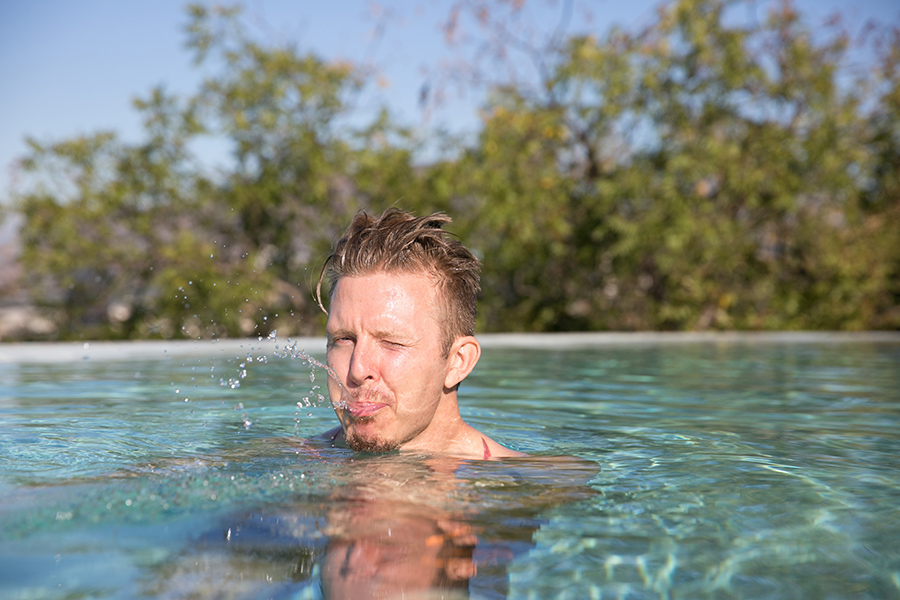A Weightless Environment For SCI Wellness
Water is the abundant and essential compound of which all known living organisms cannot live without, but it is also my estuary for pain management, physical improvement and ultimately, longevity.
Five months post-injury, I was introduced to aquatic therapy when I was transferred from my electric wheelchair via a Hoyer Lift and lowered down into the warm, shallow end of the hospital’s therapy pool. Two therapists stood in three feet of water and held my paralyzed body with the use of various flotation devises for buoyancy. It frightened me at first because I didn’t trust them, and god forbid there was mishap, I would surly sink like a stone to the bottom.
My fear drifted away though, as the warm water embraced me. One therapist cradled my head, the other my feet, and I floated face-up effortlessly. I could feel the pressure in my spine release as they snaked me side-to-side. My hips released from the chronic holding pattern of sitting all day and my shoulders, weighed down on land, let up. Tiny encumbered movements against gravity became full range of liberated motion in water. I was moving, moving in ways I otherwise would not. They eventually stood me upright and assisted my movements further. It was in the water where I took my first tiny steps without bracing and it felt as though my body remembered its purpose.
I found a real connection in the water and use aquatic therapy as an essential medium for my wellness to this day. My favorite technique is called Watsu, a form of aquatic bodywork used for deep relaxation and passive aquatic therapy. Watsu is a one-on-one session with a trained practitioner who gently cradles, moves, stretches, and massages me in warm, shallow water. Watsu is the most relaxing therapy I have ever experienced.
The benefits of water therapy for my spinal cord injury:
- Reduced Gravity
- Increased Joint Range of Motion (ROM)
- Reduced Inflammation
- Increased Circulation
- Decreased Stress
- Increased Flexibility
- Increased Strength
- Cardiovascular Benefits
- Decompression of the Diaphragm
- Improved Digestion
- Skin Hydration
Although I cannot swim and a shallow pool is still very dangerous, I cautiously use the water for therapeutic exercises and as a sanctuary away from the weight of the world.
Enjoy the swim.
-Aaron









 I have progressive MS and I find it hard sometimes to have a positive attitude. How do you reach out to others?
I have progressive MS and I find it hard sometimes to have a positive attitude. How do you reach out to others?







Thank you Aaron for such an insightful comment on your life experience with water therapy.